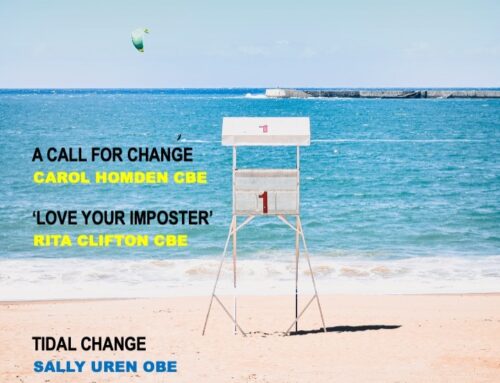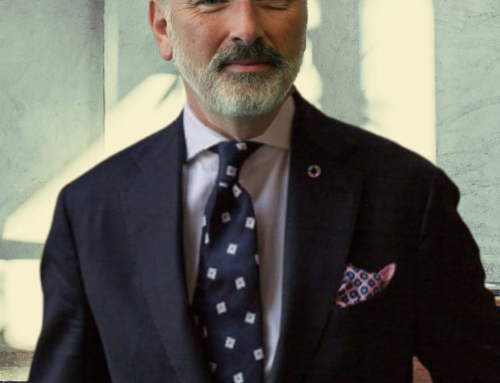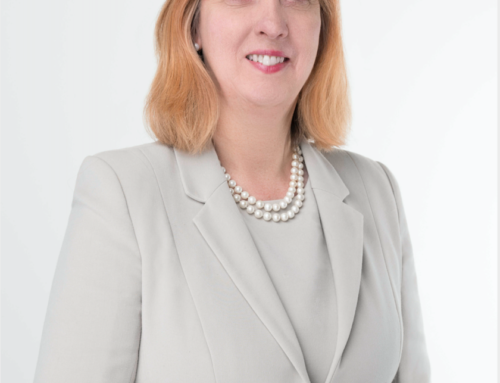We Need a Reset, Not a Restart

One year after Iceland’s 2008 financial meltdown, I found myself in one of the country’s largest sporting halls with 1,500 fellow Icelanders. Working side-by-side, as ordinary citizens and leaders from all walks of life, we came together to shape a vision of a better future for our country and determine the values we needed to champion to reach it.
This National Assembly gave our country much-needed energy and direction as we worked our way out of crisis—and co-creating this effort proved one the most humbling and inspiring experiences of my career. I’ve found myself drawn back to the spirit of the Assembly many times over the years, but none more so than today.
Today, we are facing unprecedented human suffering the world over. I would never equate the scale of the economic losses we suffered in the 2008 financial crisis with this pain. But as the broader impacts of our current pandemic unfold, it’s clear that both crises have laid bare unsustainable inequalities and injustices as well as fundamental weaknesses in our business cultures and economic systems.
This time, we must learn and do everything in our power to not just restart “business as usual” as we mostly did following the financial crisis of 2008. We must call for a reset. The current crisis is testing our personal and professional resilience once more, but going back to normal can not be the solution. We must bounce forward and catalyze a future we consciously choose. And we must do so through a new model of leadership.
What if we now found the courage to reimagine and reset our personal and professional purpose to be of service to humanity? What if we agreed to a global set of imperatives to help guide the co-creation of a new social and environmental contract, one that left neither people nor the planet behind? What if we were brave enough to use this pandemic pause to reset our definition of success? What if we made sure to measure what actually matters, like the health and wellbeing of all life and the natural systems that help us thrive?
What if we reimagined private and public sector leadership to be gender balanced and diverse? What if we paused long enough to learn to manage our own egos and embraced the fact that we are all ONE, be it against this global pandemic or other challenges like climate change and breakdowns in nature, unsustainable levels of inequalities and low-to-no trust the world over?
The leadership we now need is the kind that is willing to answer these questions with bold dialogue and brave action. The kind that is ready to take a personal risk for the benefit of humanity. The kind that embraces courage and humility in equal balance—knowing that while the road ahead may be uncertain, it is our responsibility to build back better. The kind that understands that a reset requires radical collaboration between all stakeholders.The kind that knows we don‘t have all the answers, but believes that together we will find them.
This new model won’t come easy for all of us, but it is our collective imperative. We’re now seeing the tragic outcomes of our crisis of conformity in leadership. None of us can ignore that—nor can we ignore what society now expects of us.
More than half of our youth has lost faith in capitalism as we have been practicing it. Urgent calls for a new social contract and a more equitable, fair and just future are now coming from governments, business leaders, investors and civil society in every corner of the world. In responding to our current crisis, the majority of consumers expect business to take care of all its stakeholders and are losing trust in those firms they perceive as not doing so.
We can’t know the answers to every challenge of our current crisis, or the next one, but we can meet each with compassion, courage and creativity. The decisions we make now determine the types of leaders we choose to be. The world needs purpose-driven and principled leaders, ones that recognize, and act upon, their accountability for more than just the bottom line. Ones that embrace transformative leadership and join others in building more inclusive economies and societies.
While the temptation in a moment like this might be to look for one strong leader who has all the answers to our problems, these times call for anything but that. It is time for collective wisdom and collaborative leadership between unlikely allies.
It is time for efforts like Iceland’s National Assembly. While the full impact of the work of the National Assembly may be hard to assess, this collective effort embodies the compassion, collaboration, courage and humility the world needs at this moment. We need to come together, in our communities and in our countries, to listen to each other. To challenge conformity in leadership. And to set out a collective vision of an equitable, sustainable and inclusive future.
So the main question we face now is: what if we build back better? It is possible to recover from this crisis and build the future we want, not the past we know—but we can only do so by reimagining and redesigning the way we lead.
Halla Tómasdóttir
CEO and Chief Change Catalyst of The B Team, a global collective of business and civil society leaders working to create new norms of corporate leadership today, for a better tomorrow. As a business leader, entrepreneur, investor and presidential candidate, Halla has been an advocate for purpose-driven and principled leadership throughout her career.
Twitter: @thebteamhq
LinkedIn
https://bteam.org/


We Need a Reset, Not a Restart

One year after Iceland’s 2008 financial meltdown, I found myself in one of the country’s largest sporting halls with 1,500 fellow Icelanders. Working side-by-side, as ordinary citizens and leaders from all walks of life, we came together to shape a vision of a better future for our country and determine the values we needed to champion to reach it.
This National Assembly gave our country much-needed energy and direction as we worked our way out of crisis—and co-creating this effort proved one the most humbling and inspiring experiences of my career. I’ve found myself drawn back to the spirit of the Assembly many times over the years, but none more so than today.
Today, we are facing unprecedented human suffering the world over. I would never equate the scale of the economic losses we suffered in the 2008 financial crisis with this pain. But as the broader impacts of our current pandemic unfold, it’s clear that both crises have laid bare unsustainable inequalities and injustices as well as fundamental weaknesses in our business cultures and economic systems.
This time, we must learn and do everything in our power to not just restart “business as usual” as we mostly did following the financial crisis of 2008. We must call for a reset. The current crisis is testing our personal and professional resilience once more, but going back to normal can not be the solution. We must bounce forward and catalyze a future we consciously choose. And we must do so through a new model of leadership.
What if we now found the courage to reimagine and reset our personal and professional purpose to be of service to humanity? What if we agreed to a global set of imperatives to help guide the co-creation of a new social and environmental contract, one that left neither people nor the planet behind? What if we were brave enough to use this pandemic pause to reset our definition of success? What if we made sure to measure what actually matters, like the health and wellbeing of all life and the natural systems that help us thrive?
What if we reimagined private and public sector leadership to be gender balanced and diverse? What if we paused long enough to learn to manage our own egos and embraced the fact that we are all ONE, be it against this global pandemic or other challenges like climate change and breakdowns in nature, unsustainable levels of inequalities and low-to-no trust the world over?
The leadership we now need is the kind that is willing to answer these questions with bold dialogue and brave action. The kind that is ready to take a personal risk for the benefit of humanity. The kind that embraces courage and humility in equal balance—knowing that while the road ahead may be uncertain, it is our responsibility to build back better. The kind that understands that a reset requires radical collaboration between all stakeholders.The kind that knows we don‘t have all the answers, but believes that together we will find them.
This new model won’t come easy for all of us, but it is our collective imperative. We’re now seeing the tragic outcomes of our crisis of conformity in leadership. None of us can ignore that—nor can we ignore what society now expects of us.
More than half of our youth has lost faith in capitalism as we have been practicing it. Urgent calls for a new social contract and a more equitable, fair and just future are now coming from governments, business leaders, investors and civil society in every corner of the world. In responding to our current crisis, the majority of consumers expect business to take care of all its stakeholders and are losing trust in those firms they perceive as not doing so.
We can’t know the answers to every challenge of our current crisis, or the next one, but we can meet each with compassion, courage and creativity. The decisions we make now determine the types of leaders we choose to be. The world needs purpose-driven and principled leaders, ones that recognize, and act upon, their accountability for more than just the bottom line. Ones that embrace transformative leadership and join others in building more inclusive economies and societies.
While the temptation in a moment like this might be to look for one strong leader who has all the answers to our problems, these times call for anything but that. It is time for collective wisdom and collaborative leadership between unlikely allies.
It is time for efforts like Iceland’s National Assembly. While the full impact of the work of the National Assembly may be hard to assess, this collective effort embodies the compassion, collaboration, courage and humility the world needs at this moment. We need to come together, in our communities and in our countries, to listen to each other. To challenge conformity in leadership. And to set out a collective vision of an equitable, sustainable and inclusive future.
So the main question we face now is: what if we build back better? It is possible to recover from this crisis and build the future we want, not the past we know—but we can only do so by reimagining and redesigning the way we lead.
Halla Tómasdóttir
CEO and Chief Change Catalyst of The B Team, a global collective of business and civil society leaders working to create new norms of corporate leadership today, for a better tomorrow. As a business leader, entrepreneur, investor and presidential candidate, Halla has been an advocate for purpose-driven and principled leadership throughout her career.
Twitter: @thebteamhq
LinkedIn
https://bteam.org/





